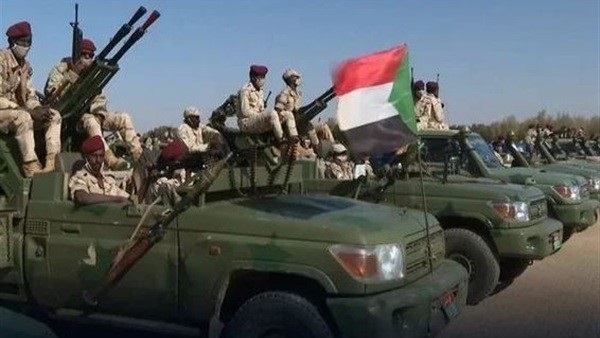US sanctions on Sudan include army, RSF, and direct impact on the people

After a month and a half of battles in Sudan that resulted
in more than a million displaced persons and refugees, in addition to hundreds
of dead and wounded, international parties have exhausted their efforts to
mediate, resolve matters peacefully, and resort to the negotiating table
between the Sudanese army and the Rapid Support Forces (RSF).
After international efforts - especially from the US - failed
to resolve the conflict between the two parties, Washington decided to impose
sanctions on the conflicting parties in Sudan.
The United States announced the imposition of new sanctions
on the two parties to the conflict due to the violent practices taking place in
Khartoum during the past days, noting that the violations of the ceasefire
between the Sudanese army and the RSF may prompt the imposition of more
sanctions.
Sanctions were as follows
A senior White House official announced that the United States
would impose new economic sanctions and visa restrictions against parties that
engage in violence in Sudan.
US Secretary of State Antony Blinken warned that the United
States might take action against the leaders of the Sudanese army and the RSF
after the collapse of the US-sponsored ceasefire.
“We hold the Sudanese army and Rapid Support Forces and
entities subject to them accountable for actions that threaten peace and
security, and we will impose measures to enhance accountability for actions
committed by the Sudanese army and Rapid Support Forces, including economic
sanctions,” Blinken added.
“We imposed sanctions on Tradive General Trading, which the
Rapid Support Forces use to purchase equipment for its forces, as well as on
Sudan Master Technology for its role in supporting companies producing weapons
and vehicles for the army, and the state-run Defense Industries System that
produces equipment and weapons for the Sudanese army,” he continued.
The sanctions against Sudan include companies affiliated
with the army and the RSF, as well as sanctions against four companies
affiliated with military authorities that feed both sides of the conflict in
Sudan, including Al-Junaid Multi Activities Company and Defense Industries
System.
Effect of sanctions
The Sudanese government and people have been severely
affected by the US sanctions imposed on the country, and these sanctions will
disrupt the Sudanese economy and restrict trade and investment, causing a
deterioration in the living conditions of the Sudanese people.
Economic, commercial and financial sanctions isolate Sudan
from global markets and restrict trade and investment movement in the country.
These sanctions cause a decline in economic growth and an
increase in unemployment and poverty rates in Sudan, in addition to disrupting
health, education and other humanitarian services in the country.
Among the other effects of the US
sanctions is the negative impact on human rights
and democracy. The sanctions also affected the field of health and education in
Sudan, as the authorities were unable to obtain medicines, medical equipment
and foodstuffs necessary to meet the needs of the people.
Reasons for new sanctions
In turn, Khaled al-Aseer, a Sudanese political researcher,
said that the United States imposed many sanctions on Khartoum, and that the
issue of imposing sanctions on Sudan is not a new matter.
He explained that the beginning of these sanctions was
during the era of former Sudanese President Omar al-Bashir, noting that the
reason for the new sanctions revolves around what the Sudanese army, led by
Abdel Fattah al-Burhan, and the Rapid Support Forces, led by Mohamed Hamdan
Dagalo “Hemedti”, are doing.
He stressed that the Sudanese Armed Forces did not stop
developing defense systems under these sanctions as well, which indicates that
the US sanctions did not impose a direct impact on the strength of the Sudanese
army.
Aseer pointed out that the United States is not playing the
required role at the present time, which is to provide what can be provided of
medical and humanitarian assistance to the citizens in Sudan who are suffering
greatly as a result of the war and violent
confrontations, or at least trying to reach solutions with the warring parties.
Years of sanctions
Historically, the United States imposed many sanctions on
Sudan from 1997 to 2017 due to issues related to human rights and terrorism.
Among the sanctions imposed on Sudan were freezing Sudanese
assets; preventing some exports, imports, and financial transfers; and
restricting entry visas for Sudanese to the United States.
In 2017, the United States announced the lifting of some
economic sanctions imposed on Sudan under the “comprehensive transformation”
program aimed at improving relations between the two countries, but some other
sanctions remained in effect.
In 2020, the United States announced its intention to remove
Sudan from the list of state sponsors of terrorism, a measure aimed at
supporting Sudan's democratic transition and facilitating the country's
economic reintegration into the international community.







